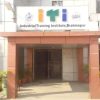The rise of conscious learning, yoga, mindfulness and spirituality in education
Lina Ashar, Founder, Dreamtime Learning School
Introduction to Conscious Learning: In the fast-evolving education landscape there is a notable shift towards a holistic approach to nurturing of young minds. Education is not merely about knowledge delivery but also necessitates shaping students into well-balanced, resilient individuals attuned with their inner selves. Conscious learning is a new age pedagogy that develops a deep awareness of students’ thinking, emotions, and action.
A good education requires more than reading textbooks and taking tests. It should include cultivating children’s emotional intelligence and developing their self-awareness and cognitive skills. In response to ever-increasing pressures of contemporary life, there’s rising interest in conscious learning, yoga, mindfulness and spirituality. Currently, a large and growing number of parents and educators are expressing preference for conscious learning techniques for their children.
Mindfulness has been introduced into education to enhance children’ well-being, mental health, social and emotional skills, resilience, pro-social behaviour — all of which enhances academic performance. This integral part of my education philosophy encourages students to develop keen awareness of their thoughts and emotions. By teaching mindfulness techniques, educators can empower students to manage stress, improve concentration, and cultivate their emotional intelligence. These skills are becoming increasingly valuable in academic settings to prepare students for the complex challenges they are certain to experience in higher education and adult life.
To enable students to connect their minds and bodies holistic learning is the best option. It addresses all aspects of individual growth — intellectual, emotional, physical, social, and spiritual. It acknowledges that a student is more than the sum total of her academic achievements and that personal and emotional development play an equally significant role in shaping her future.
Let’s examine why schools, educators and parents are choosing conscious learning educational pathways for their children.
Emotional intelligence: The heart of conscious learning. In addition to enhancing academic performance conscious learning develops the emotional intelligence of children. Through yoga and mindfulness, children can develop self-awareness, compassion and communication skills. These are the prerequisites of nurturing emotional intelligence and social skills.
Stress reduction and mental well-being. With the explosion of social media, 21st century children are experiencing high levels of stress and anxiety in today’s fast-paced world. Conscious learning practices, such as mindfulness and yoga, equip children with tools to navigate life’s challenges. Conscious learning promotes stress reduction, emotional resilience, and overall mental wellbeing, inducing positive, balanced mindsets.
Mind-body connection. Mind-body connection is crucial for children’s holistic development. From time immemorial educators have connected mental and physical health (mens sana in corpore sano). To establish the mind-body connection some schools subscribe to online physical education programs, yoga and mindfulness sessions, which are incorporated into the curriculum. Not only do these programmes encourage physical fitness, they also teach students how to manage stress, focus and improve self-management.
Self-awareness. Self-awareness is the foundation of all holistic development. Capability to recognise one’s strengths, weaknesses, and values, enable students make better decisions to tackle life’s formidable challenges. Intelligent educators develop their students’ self-awareness by encouraging them to introspect to discover their interests and passions and follow them.
Cultivating focus and concentration. In an era when children are bombarded with digital distractions, discerning parents worry about their children’s ability to focus and remain focused for adequate time periods. By incorporating meditation into children’s learning, teachers and parents can help them develop concentration capabilities and skill-sets.
Spirituality. Spirituality in education is religion neutral. But it helps children to development of the virtues of compassion and empathy virtues advocated by all religions. By introducing children to spiritual ideas and learning parents can instil meaning and ethics into their children.
Increasingly spiritual education is becoming related to nature-related activities and environmental consciousness. In these days of climate change and looming environment disaster, educators need to develop students’ strong connection with nature. Outdoor play, nature walks and eco-friendly activities are becoming mandatory for children to develop environment preservation responsibility.
Lastly, teaching children to commit themselves to lifelong learning is part and parcel of conscious learning that extends beyond the traditional education. Parents and teachers need to instil passion for exploration and discovery in children to encourage them to become lifelong learners who address challenges with curiosity and problem-solving attitude.
As awareness of the importance of conscious learning grows, the importance of yoga, mindfulness and spirituality in education is a natural consequence. Latter day parents and teachers must provide a balanced and holistic education for children’s optimal development. Children gifted with mental health, emotional intelligence and a connection to the fast-changing world are moving ahead to face life’s increasingly complex challenges with confidence and purpose.
(A pioneer of professionally administered early childhood education and care and promoter of the nationwide Kangaroo Kids preschools chain, Lina Ashar is currently the founder-director of the Dreamtime Learning School, Mumbai)
Also read: Lina Ashar’s Dreamtime Learning School: Revolutionizing hybrid education

















Add comment